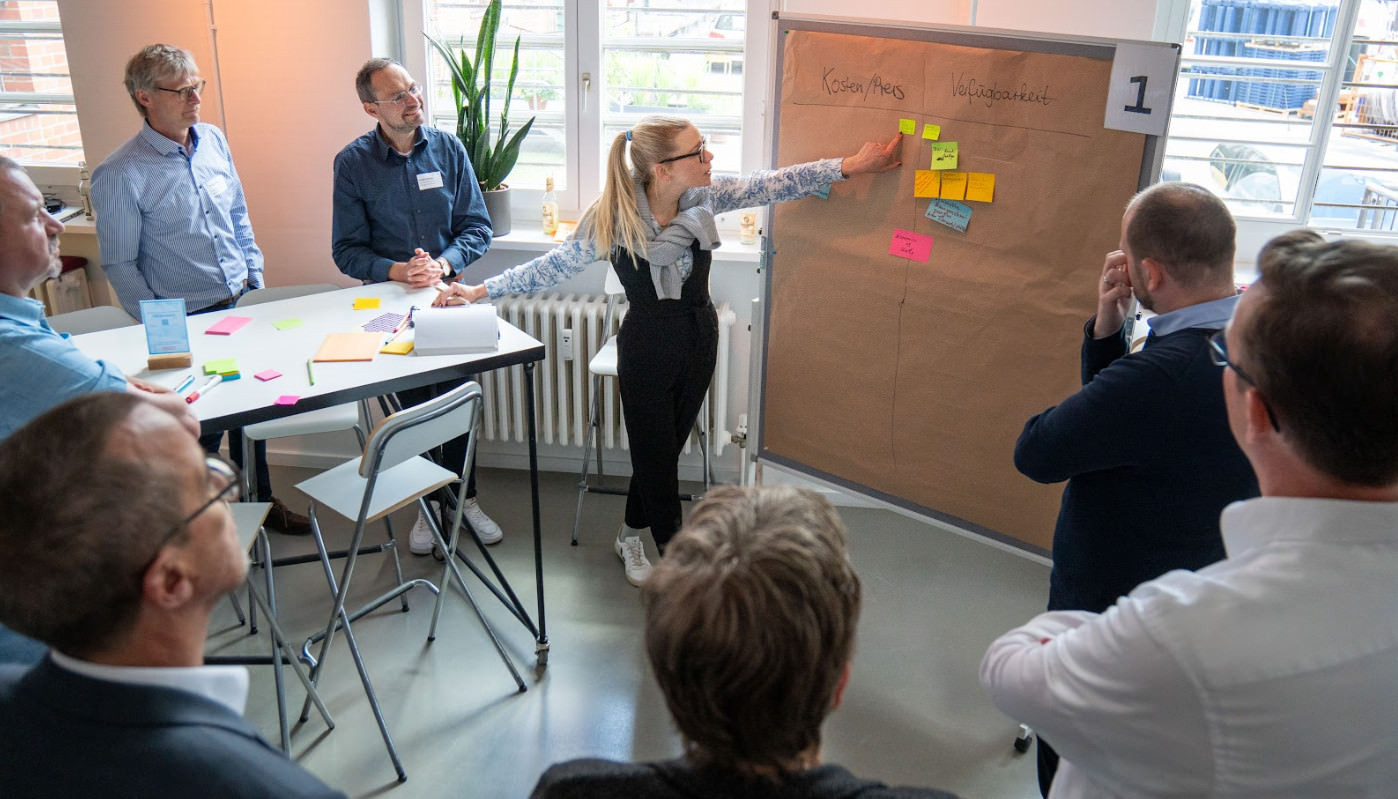Corporate Outreach

We engage in constructive cooperation with companies of the food sector but also exert pressure through campaigns if necessary. Our objective is to improve animal welfare standards, optimize their plant-based options and reduce the use of animal products. To ensure globale effectiveness, we partner with the Open Wing Alliance.
European Chicken Commitment
See our initiative.
Ending the use of battery cages & beak searing
See our initiative.
Defining welfare standards in the aquaculture industry
See our campaign.
Working with food retailers on animal welfare and their plant-based offer
We take pride in not just achieving short-term victories but also in cultivating lasting relationships with important food companies. One of the most prominent signs of success in this area is the fact that we are cooperating closely with the largest retailers on their animal welfare policies and their plant-based product ranges. We regularly publish rankings on these topics to create transparency for consumers and highlight accomplishments as well as areas for improvement.
In 2017, we published the first detailed comparison of animal welfare standards among the eleven largest supermarket and discounter chains in Germany. In 2020, we turned this simple comparison into a comprehensive ranking that we update regularly.
Our vegan retail rankings have an even longer history: We published our first benchmark in 2015. Since then, follow-up rankings were issued in 2017, 2019 and 2023. With these in-depth analyses, we are creating a growing dataset of valuable insights and building a bridge to our program Plant Potential.
Vegan guide for universities and caterers
Our practical 180-pages guide for large-scale catering offers recommendations regarding plant-based alternatives to animal products and more than 80 recipes specially designed for canteen kitchens. The Vegan Guide has received coverage in the trade press, and we have also directly contacted decision-makers in the gastronomic industry in order to distribute it. More than 1,000 stakeholders received a copy of the guide in 2017. It can be downloaded from our website.
We have received lots of positive feedback, with one caterer reporting that the Vegan Guide has been used as a basis for expanding the internal pool of recipes and the goods management system (and it is entirely possible that other caterers have done the same).
Today more than 50% of the offering in student dining halls in Germany is vegetarian or vegan a development that we are proud to have supported through our Vegan Guide and other measures.
Making plant-based options successful and more mainstream
When we began our work to make plant-based more mainstream, we created individual concepts, workshops and consultations for food companies. Here are some of the successes we achieved through this:
- Getting a national pizza chain to test, and to later fully implement and increase, their plant-based options
- Getting producers of vegetarian and vegan meats to offer more plant-based products
- Increasing the number of plant-based options at the restaurants of Deutsche Bahn (the only operator of long-distance trains in Germany)
- Cooperating with universities to implement more and better plant-based options and working on their communication
- Working with supermarket chains to expand their plant-based products and to positively communicate around the topic
- Evaluating menu items and providing guidance on methods to minimize the use of animal-derived ingredients.
In order to intensify our plant-based work and reach an even broader range of companies in the food sector, we launched our new program Plant Potential in 2022.
Plant Potential encourages companies to use fewer animal products throughout their supply chains while, at the same time, optimizing their plant-based products. We support them in this important mission by providing scientifically based information, our expertise and tools for measuring and acting as a contact for any questions they may have about making the transition.
Website and newsletter: Insights for food industry decision makers
Our B2B platform Lebensmittel-Fortschritt.de and its newsletter have made us one of the main sources of information for decision makers in the German food industry.
Our monthly newsletter is dedicated to showcasing the efforts of companies who are pioneering animal welfare and embracing the development of plant-based offerings. Our readers join us in showcasing plant-based innovations and advancements in animal-friendly food technology.
With its recipients from large to medium-sized food companies across Germany and beyond, our newsletter's impact is hard to measure specifically but undoubtedly influential, encouraging companies to outperform their competitors by taking essential steps towards a better food system.
With an impressive average opening rate of 30%, we are committed to publicizing vital progress and fostering great interest among our valued subscribers. Together with these decision makers we are at the forefront of shaping the future of food.